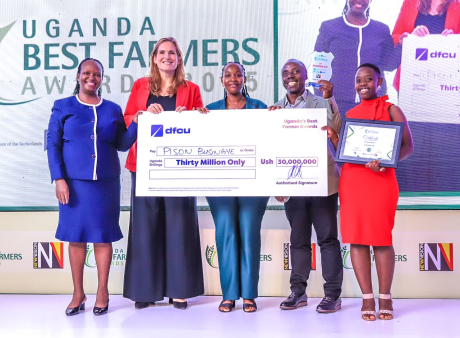At the heart of Uganda’s agribusiness sector, where farming is not just a way of life but a means of survival, dfcu Bank stands as a beacon of transformation. With development finance as its core mission, the bank continues to demonstrate its unwavering commitment to improving lives, empowering businesses, and nurturing communities across Uganda.
This is especially evident through its partnership with the Agribusiness Development Centre (ADC), where dfcu has been instrumental in empowering smallholder farmers, cooperatives, and small and medium enterprises (SMEs) to unlock their full potential. The recently published ADC Impact Report for 2022/2023 underscores the bank’s long-term dedication to growth, sustainability, and resilience in Uganda’s agricultural sector, ensuring that every intervention counts and every life touched is transformed.
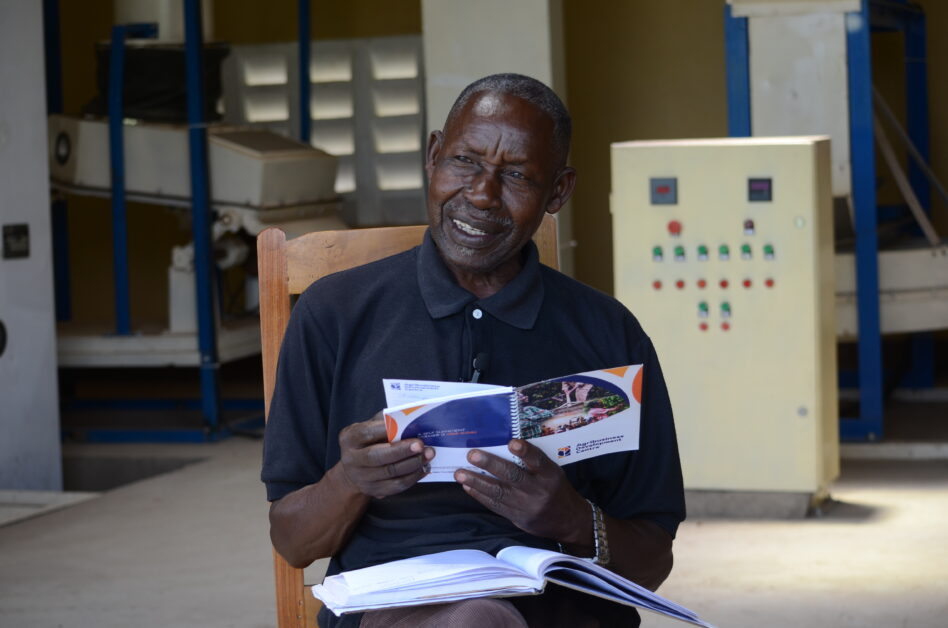
Take the example of Rubanga Cooperative Society, a prime beneficiary of ADC’s capacity-building programs. Before partnering with ADC, the cooperative struggled to compete in export markets, and the farmers faced limited access to financial support and training. Through ADC’s comprehensive business development initiatives, Rubanga received valuable training in governance, marketing, and financial management. As a result, the cooperative secured over USD 2.7 million in export contracts, expanded its processing capabilities, and achieved a 38% price increase through Fair Trade Certification. This transformation has positively impacted over 9,000 farmers, greatly improving their financial stability and livelihoods.
This success story is not an isolated case. Over the past year, ADC reached 885 enterprises and supported 27,079 smallholder farmers through programs focused on governance, financial literacy, marketing, innovation, coaching, mentorship, and climate-smart agriculture. By providing participants with the tools they need to improve productivity, enhance market access, and reduce risks, ADC is making a profound impact on Uganda’s agricultural communities.
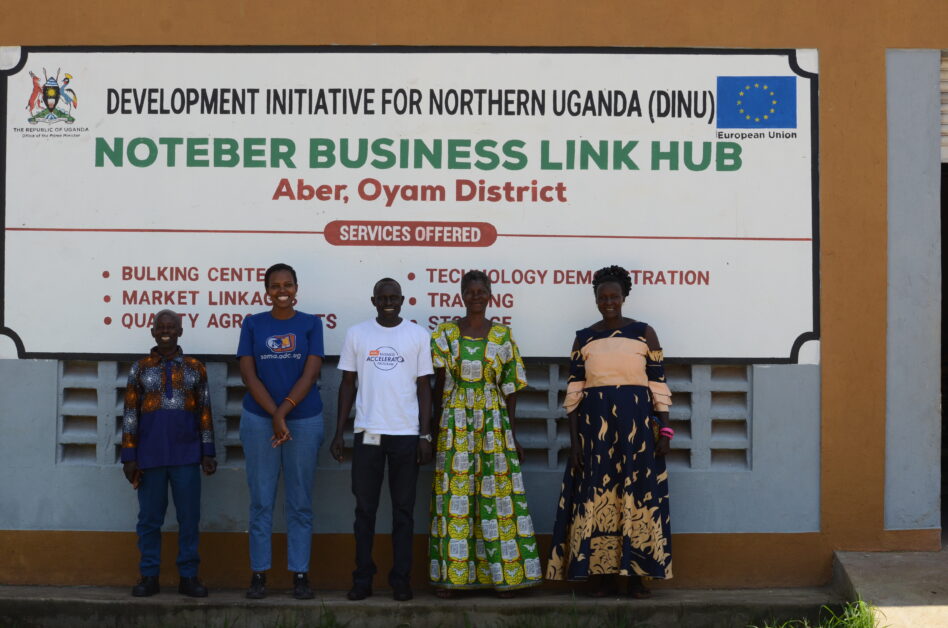
What stands out is ADC’s focus on gender equality. In 2023, 51.7% of the beneficiaries trained by ADC were female, surpassing their target of 40%. This has had a ripple effect, encouraging greater women’s participation in decision-making processes and ultimately improving household incomes. Additionally, the success of ADC’s programs in fostering leadership among under-represented groups is evident; 48.1% of youth and 61.8% of women trained by ADC have moved into management roles within their organisations, showcasing the program’s success in cultivating leadership and innovation.
Driving Economic Growth and Sustainability
The economic impact of ADC’s initiatives is tangible. One key area where ADC has made significant strides is in job creation. Through its various programs, ADC facilitated the creation of 554 new jobs in 2022/2023, moving the organisation closer to its target of 1,114 jobs. This not only reduces unemployment pressures but also contributes directly to the economic growth of rural communities where jobs are often scarce.
Furthermore, financial inclusion remains a core focus. In partnership with dfcu Foundation, ADC facilitated access to formal banking services for 84 enterprises and over 2,177 smallholder farmers. This initiative has improved financial literacy and helped farmers and enterprises access the working capital they need to grow. ADC-supported enterprises reported an impressive additional income of UGX 6.5 billion, a 17.2% increase compared to baseline figures, underscoring the role ADC plays in fostering sustainable economic growth.
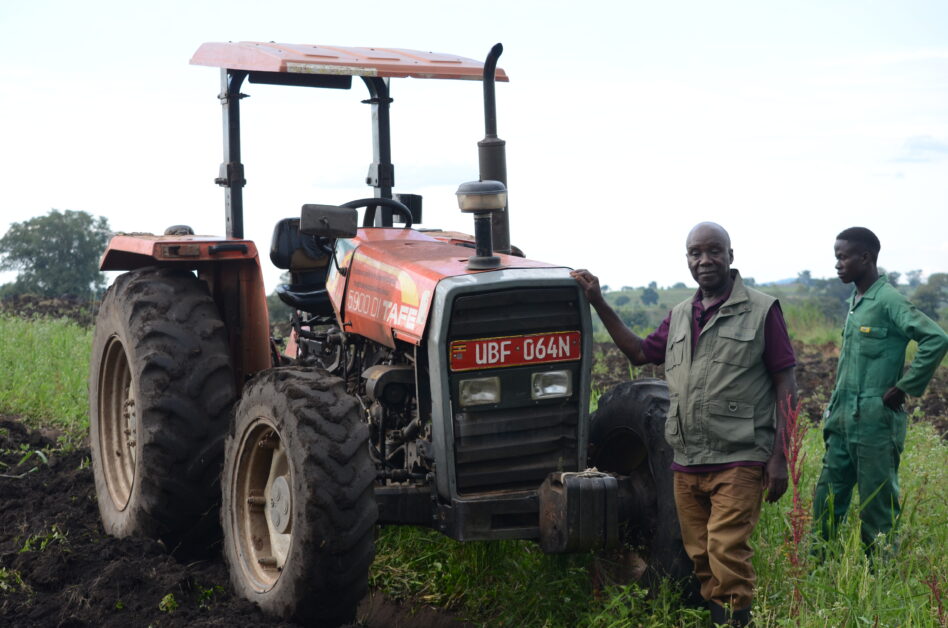
Innovation has played a key role in ADC’s impact.
In 2023, ADC embraced digital solutions by partnering with Agtual to develop the ADC BeanBook, a market information system designed to provide real-time insights for coffee and cocoa farmer producer organisations (FPOs). For farmers like Samuel, who previously struggled to negotiate fair prices for their coffee, this tool has been transformative. By having access to current market data, Samuel is now able to make better-informed decisions about pricing and sales, ensuring higher profits and financial security for his family.
ADC’s partnerships have also been instrumental in strengthening its impact. Collaborations with ABI Development, SEATINI, and GOPA Worldwide Consultants have led to initiatives like the Climate Smart Agriculture Project, which targets over 1,000 farmers across 30 FPOs, and the Business Accelerator Program, which builds SME competitiveness. These collaborations have expanded ADC’s reach and deepened its ability to support farmers and agribusinesses, from improving environmental sustainability to enhancing capacity-building efforts.
One such story is that of Grace Akatuha, a leader at Kikazi Agri Enterprises, who found herself struggling to grow her business beyond the constraints of a sole proprietorship. Through ADC’s Business Accelerator Program, Grace received training in governance, financial management, and digital tools. This support allowed her to transition her business into a registered company with sound governance practices and operational processes. Additionally, she embraced digitalisation, investing in computer equipment to keep accurate records and improve efficiency. Today, Grace’s business is thriving, and she’s actively mentoring other female entrepreneurs, proving that ADC’s programs not only help businesses scale but also empower entrepreneurs to be leaders in their communities.

Looking forward, dfcu Bank, through ADC, remains steadfast in its mission to drive inclusive growth and sustainability in Uganda’s agricultural sector. The USD 205,000 funding secured during the reporting period, combined with dfcu’s USD 173,000 investment in the Agricultural Exchange Programme, demonstrates the bank’s unwavering dedication to fostering innovation and long-term sustainability in Uganda’s agriculture.
With over 14,881 learners reached through both virtual and physical channels and 270 enterprises added to the Business Accelerator Program, ADC continues to drive transformation across Uganda. Its clean audit status further reflects its commitment to transparency and accountability, solidifying its role as a trusted partner in development.
As dfcu Bank celebrates the achievements of the Agribusiness Development Centre, it reaffirms its commitment to empowering Uganda’s agricultural sector. Through strategic investments, partnerships, and community-focused programs, dfcu Bank is not only transforming businesses but also uplifting lives, strengthening communities, and ensuring that Uganda’s agricultural sector will be a cornerstone of economic growth for generations.

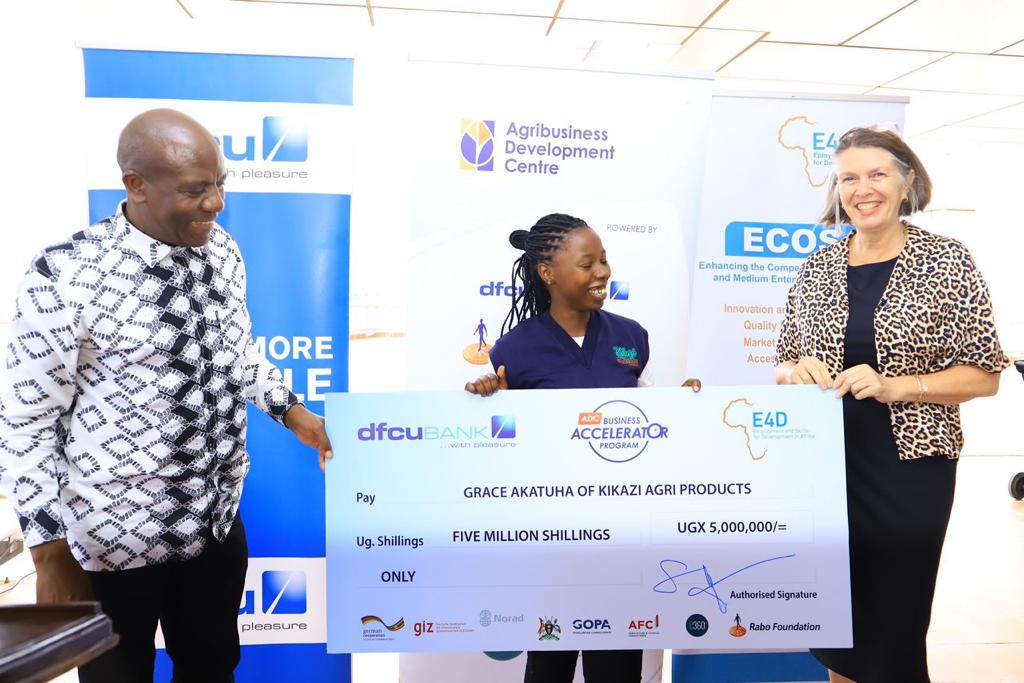
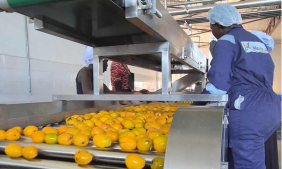 Beyond the Low-Hanging Fruit: The Grit, Capital, and Vision Required to Industrialise Rural Uganda
Beyond the Low-Hanging Fruit: The Grit, Capital, and Vision Required to Industrialise Rural Uganda


